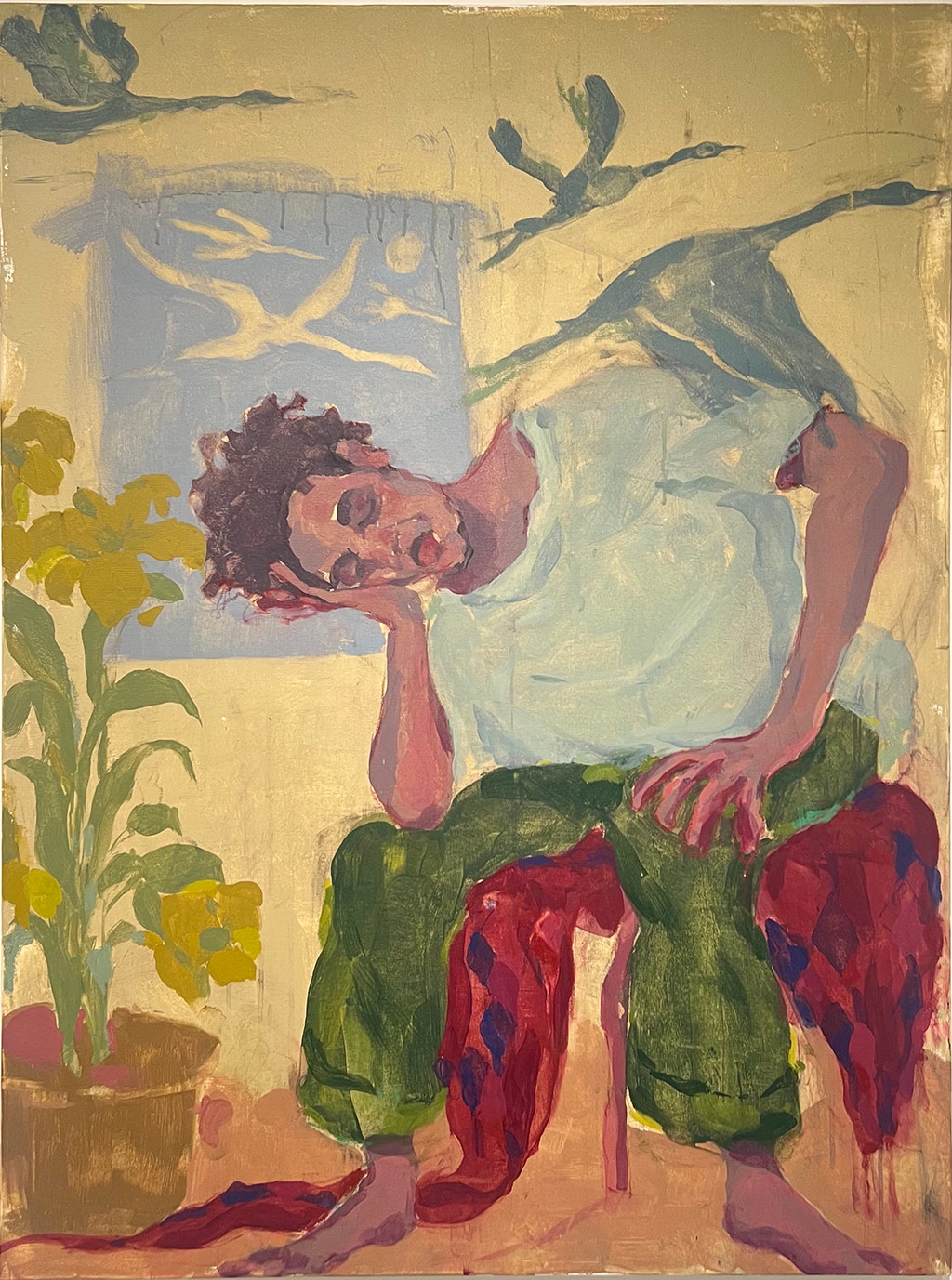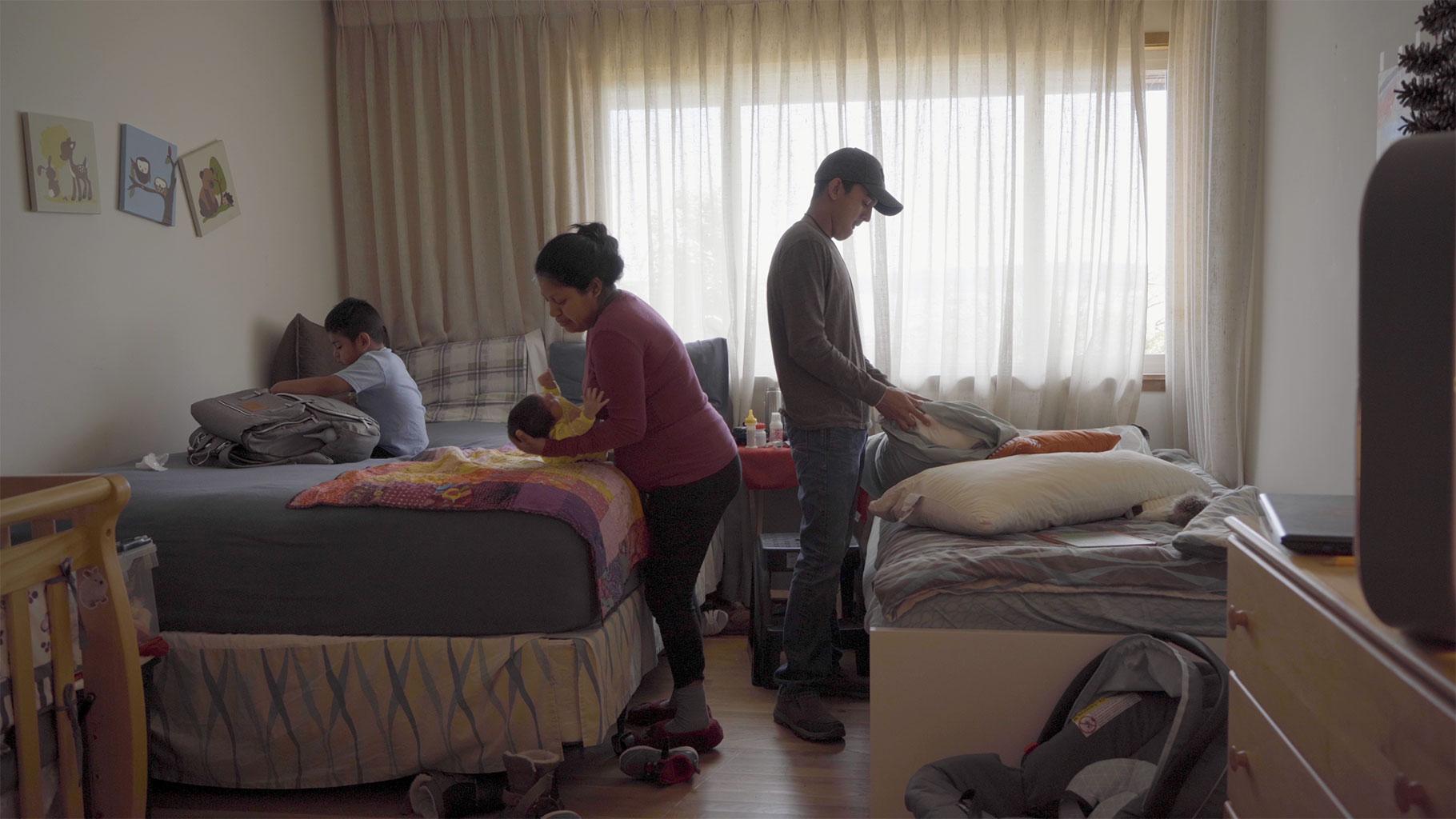

The Battle for Laikipia
(Daphne Matziaraki and Peter Murimi (Kuria), 2024, Kenya, United States, and Greece, 92 minutes, Documentary, in Samburu, English, and Swahili)
Tuesday, May 14 @ 6:00pm – SIFF Cinema Uptown
Thursday, May 16 @ 4:00pm – SIFF Cinema Uptown
Monday, May 20 to Monday, May 27 – Streaming Virtually
In Kenya’s Laikipia Plateau, nomadic Indigenous cattle herders such as the Samburu hold such a deep relationship with cattle – or ngishu – that their word for life is the similarly-related nkishon. The Battle for Laikipia discusses ideas of colonization and land rights, in a time where drought threatens the lands.
The traditional lifestyle of the Samburu is not only threatened by the changing climate, however. It is also hemmed in by fences, cameras, and rules that limit where they and their cattle can go. Nearby European ranchers and farmers – who settled in the area since colonizers arrived over a hundred years ago – have more water and grazable lands. Naturally, as environmental circumstances worsen, tensions between clashing cultures and access to grasslands build, resulting to violence and war-like incitements that truly justify the film’s title.
With drought as a factor that serves as an equalizer in some ways but also escalates power differentials in other ways, The Battle for Laikipia serves as a microcosm of threats that will be faced by populations the world over. The documentary raises questions around: “conservation” and whether lands need to be completely untouched to be good for the environment; the role of politics and whose side the Kenyan government is on; and whose perspectives are the “right” perspectives, when both the ranchers and the tribal members simultaneously seem like the victims and the aggressors.
Bring Them Home (Aiskótáhkapiyaaya)
(Ivan MacDonald (Blackfeet), Ivy MacDonald (Blackfeet), and Daniel Glick, 2024, United States and Canada, 85 minutes, Documentary, in English)
Thursday, May 16 @ 7:00pm – SIFF Cinema Uptown
Saturday, May 18 @ 2:00pm – SIFF Cinema Uptown
Not Streaming Virtually
Narrated by former Washington State resident and recent Oscar nominee for Killers of the Flower Moon, Lily Gladstone, Bring Them Home follows the important reintroduction of wild buffalo to Blackfeet territory in modern-day Montana. The reintroduction of buffalo has long held importance to a number of Native American tribes who hold a sacred relationship to them. When settler-colonizers took over Indigenous lands hundreds of years ago, they knew that buffalo were central to the lifeways of many tribes and thus intentionally murdered them, creating a long-lasting legacy of devastation that pushed the relative to near-extinction.
Reviving buffalo populations is akin to reviving traditions and ancestral ways of life. For the Blackfeet to see innii thrive on their own lands will be a victorious testament for all of the other tribes that plan to bring herds back themselves. Directed by Ivan and Ivy MacDonald (Blackfeet) and Daniel Glick, the story is, importantly, presented in a culturally-sensitive way. Bring Them Home shows the sprawling and epic beauty of Blackfeet territory, the radiance of the buffalo themselves, and the beauty of the connection between the people are in relationship with them.
City of Wind
(Lkhagvadulam Purev-Ochir, 2023, Mongolia, France, Germany, Netherlands, Portugal, and Qatar, 103 minutes, Narrative, in Mongolian)
Tuesday, May 14 @ 8:45pm – Shoreline Community College
Wednesday, May 15 @ 12:30pm – SIFF Cinema Uptown
Not Streaming Virtually
Modern and traditional worlds interplay with one another in Lkhagvadulam Purev-Ochir’s narrative feature film City of Wind, when a teenage Mongolian shaman named Ze must decide which of the two paths will draw him tighter.
Shifts happen within his heart after a shamanistic ritual unwittingly leads him to Marala – a girl who is about to undergo surgery and is forced by her mother to submit to his session – but the catch is: Marala doesn’t believe in Ze’s authenticity or ability. Somehow, Marala’s skepticism leads to an internal act of defiance and crisis of conscience within Ze. He finds himself falling in love with her. The new emotions lead to a blossoming of first crushes and drastic life changes that seem in contrast with Ze’s rural shamanastic upbringing. Whether he explores his new rebellious side through hair dying or late night outings at nightclubs, his naturally timid personality must find new ways to express itself as a Gen-Z youth in Ulaanbaatar.
City of Wind tenderly displays the coming-of-age tale of its main character, but its success success also lies in its commentary on fast-changing Mongolia – a country which remains in touch with its deeply animistic and shamanistic roots, but faces all of the challenges of modernization and urbanization.
Disco Afrika: A Malagasy Story (Disco Afrika: une histoire malgache)
(Luck Razanajaona, 2023, Madagascar, France, Madagascar, Germany, Mauritius, South Africa, Qatar, 81 minutes, Narrative, in Malagasy)
Friday, May 17 @ 9:30pm – SIFF Cinema Uptown
Sunday, May 19 @ 3:30pm – SIFF Cinema Uptown
Monday, May 20 to Monday, May 27 – Streaming Virtually
In real life, financially impoverished but mineral-rich nations face ongoing systemic issues regarding enslavement and exploitation from dominant powers seeking to take advantage of their resources. Luck Razanajaona’s narrative feature film, Disco Afrika: A Malagasy Story, tells the story of a Kwame, a young Madagasy sapphire miner who returns to his home village after it has been “sold to foreigners,” according to one of the town elders.
Complex conversations ensue among the residents over whether to fight back and defend themselves or roll over and take it. Disco Afrika shows, sadly, that the residents are strong in spirit but weak in ability to combat deeply-entrenched forces of corruption.
Using Kwame as a foil, Disco Afrika does a great job of portraying the tensions and pressures that lead to societal unrest, as well as legacies of resistance that help guide revolutionary thinking. Visually, musically, and in the settings it chooses, the film travels extensively – traversing alternately between bright days and dark nights, almost as if to make commentary on society’s ability to shine, regardless of its seedy underbelly.

Dìdi (弟弟)
Sean Wang, 2024, United States, 96 minutes, Narrative, in English and Mandarin
Saturday, May 18 @ 6:15pm – SIFF Cinema Egyptian
Sunday, May 19 @ 1:00pm – SIFF Cinema Egyptian
Not Streaming Virtually
For some who grew up in the ’90s and ’00s, Sean Wang’s buzzworthy narrative feature film, Dìdi (弟弟), will hit all of the right nostalgic notes. Were you a lover of pop-punk and skate culture? Did you feel emotionally repressed around your Asian family? Did you type in questionable ebonics via AOL Instant Messenger? Did you find yourself feeling tongue-tied around your crush? Well then, you might just see yourself in Dìdi (弟弟) – a semi-autobiographical, coming-of-age tale about a 13-year-old Taiwanese-American boy’s struggle to find his place among his peer groups and family.
Dìdi (弟弟) translates to “little brother” in Mandarin Chinese – but “dìdi” is also a common term of affection for the youngest male child in a family. In this case, “dìdi” lives in the diverse Bay Area community of Fremont, California – and during one transformative summer in 2008, he discovers himself through skateboarding, flirting disasters, and a deepening of his relationship with his mom and sister. His grandma – played by Wang’s real-life grandma – is also adorable.
Evil Does Not Exist
(Ryûsuke Hamaguchi, 2023, Japan, 105 minutes, Narrative, in Japanese)
Friday, May 10 @ 6:30pm – Shoreline Community College
Saturday, May 11 @ 3:00pm – SIFF Cinema Uptown<
Not Streaming Virtually
A story with important implications on modern Japanese society, Ryûsuke Hamaguchi’s latest narrative feature film, Evil Does Not Exist, critiques decimations of natural landscapes due to capitalism, as a “glamping” site threatens a rural mountain village. Set to a beautiful, evocative classical score by Eiko Ishibashi, the film shares the often-unseen implications of new constructions, which do little to consider the communities they encroach upon. At a town hall, an elderly man comments, “Water always flows downhill. What you do upstream will end up affecting those living downstream” – while the corporation, meanwhile, claims that pollution will have little effect.
Hamaguchi’s first film after the Oscar®-winning Drive My Car, Evil Does Not Exist is described by Phil de Semlyen of TimeOut as, “A gorgeous eco-fable that ends with a mythical mic drop.”
Girls Will Be Girls
(Shuchi Talati, 2024, India, France, United States, and Norway, 118 minutes, Narrative, in English and Hindi)
Monday, May 13 @ 6:00pm – Shoreline Community College
Wednesday, May 15 @ 4:00pm – SIFF Cinema Egyptian
Not Streaming Virtually
Shuchi Talati’s debut narrative feature film, Girls Will Be Girls, is a coming-of-age film that lives up to its title by following academically-successful teenager Mira and her shifting actions as she becomes interested in the new boy in town. Simultaneously a rule-follower at heart and unsure of how to navigate her emergent feelings, Mira sees a fascinating dynamic emerge after she gets caught talking on the phone with the male classmate. Mira’s mom – in an attempt to make sure that Mira doesn’t get pushed away due to them exerting too many rules upon her – begins to invite the classmate over so she can get to know him better, though she warns that she won’t allow anything more than a friendship between the two.
Still, the mom allows for semi-supervised study sessions and intimate mealtime gatherings – thus creating a dynamic that fosters romance. As Mira’s body changes and she learns more about her parents’ relationship – including their engagement at the young age of 21 – Mira begins to flirt more – both with her classmate and around ideas of what is acceptable and unacceptable, despite repressive societal expectations… and a mother who may or may not be flirting with her crush.

Luther: Never Too Much
(Dawn Porter, 2024, United States, 101 minutes, Narrative, in English)
Friday, May 10 @ 6:30pm – SIFF Cinema Egyptian
Sunday, May 19 @ 1:30pm – AMC Pacific Place
Not Streaming Virtually
Amidst massive global unrest, heaviness, and fragmentation, Luther: Never Too Much may very well be the feel-good documentary cure you didn’t know you needed. Any documentary about Luther Vandross practically sells itself, due to the soul legend’s numerous hits and noteworthy deep cuts, and the film’s extensive use of precious archival footage certainly brings back nostalgic memories and feeds the heart. Interviews with other familiar faces, such as David Bowie, Jamie Foxx, Mariah Carey, Dionne Warwick, and Roberta Flack, also serve to reflect on important moments of Vandross’ career. His rare journey began when he was back-up singer for massive names such as Barbra Streisand, Robert Flack, and Bette Midler, stepped into a stint as a commercial TV singer for advertisements, and finally, expanded into a solo artist whose unforgettable silky voice practically made him a household name.
Still, despite his extensive list of successes, Vandross’ life hasn’t always been easy, and the documentary certainly shows the ways in which the star felt lonely. While surrounded by admirers and confidants, the concept of romantic love eluded Vandross throughout his life – and Luther: Never Too Much poses the question of whether his never-fully-confirmed sexuality played a role.
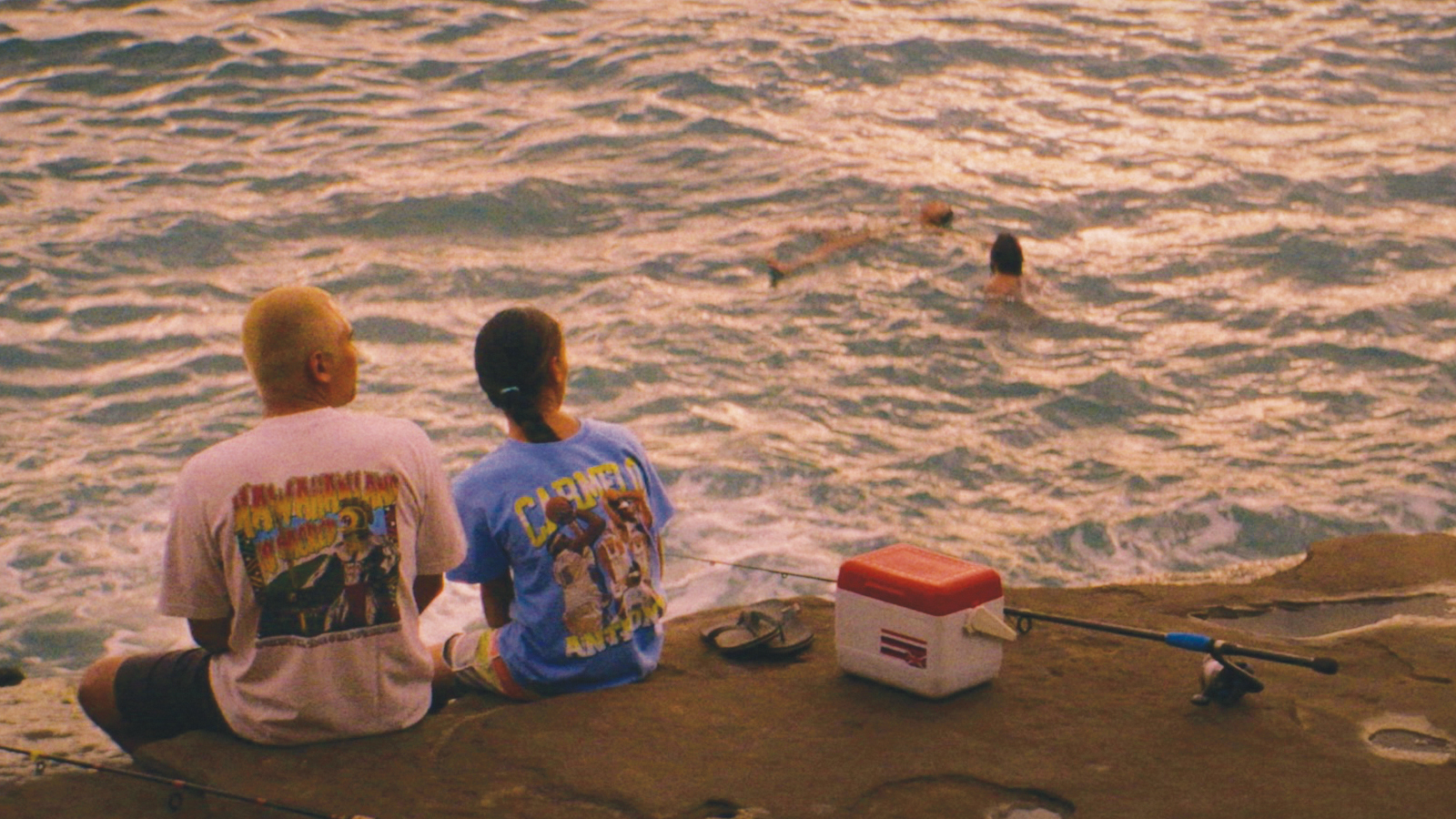
Molokaʻi Bound
(Alika Tengan (Kanaka Maoli), 2024, United States, 112 minutes, Narrative, in English, Pidgin, and Hawaiian)
Friday, May 17 @ 6:00pm – SIFF Cinema Uptown
Saturday, May 18 @ 2:30pm – SIFF Cinema Uptown
Monday, May 20 to Monday, May 27 – Streaming Virtually
Built off the writer-director Alika Tengan (Kanaka Maoli)’s compelling 2019 short film of the same name, Molokaʻi Bound is a tender tale of Kainoa’s return to Hawaiian society following his incarceration. After being gone for seven years, Kainoa has the difficult task of earning the trust of his ex, his teenage son, his friends, and society, which wants to make sure every step of the way that he’s continuing to step in line. Perhaps the most illuminating part of Kainoa’s journey is teaching his son to be proud of the intricacies of being Native Hawaiian and from the lands of Molokaʻi – where horses and deer run wild – even if he’s now living in O’ahu, where assimilation is easier.
Molokaʻi Bound is a precious, authentic victory for on-screen representation, while crucial elements of Native Hawaiian life, such as food, language, dance, and music thread their way through an intimate family drama about connection with one another and reconnection to culture. Throughout, it offers the concept that some things are more important than simply falling into line, no matter what dominant society may tell you.
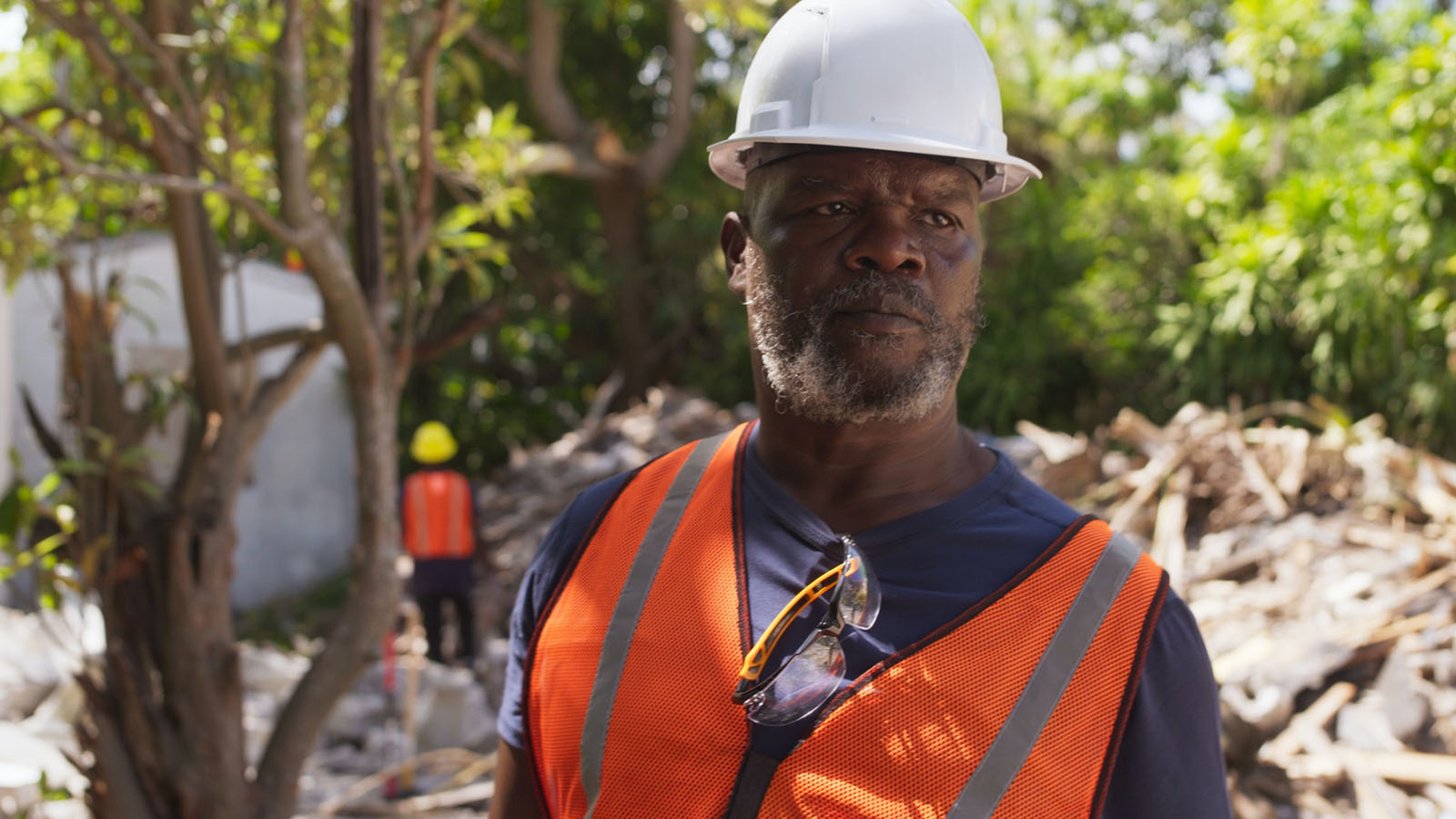
Mountains
(Monica Sorelle, 2023, United States, 95 minutes, Narrative, in English, Spanish & Haitian Creole)
Monday, May 13 @ 6:30pm – AMC Pacific Place
Tuesday, May 14 @ 3:30pm – SIFF Cinema Uptown
Monday, May 20 to Monday, May 27 – Streaming Virtually (WA State Only)
In the multilingual narrative film Mountains, a Haitian immigrant family based out of Miami explores what it is to dream. Their individual and collective journeys show a construction worker father who wishes to buy a new home for his family, a nurturing mother who wonders if being a seamstress lifestyle might indeed be possible, and a son who adapts to American culture through his pursuit of a life as a comedian.
Directed by Monica Sorelle, Mountains doesn’t attempt anything overly lofty or harrowing; it is simply a well-told tale about a copasetic family of new arrivals who learn to settle into U.S. life – representing a community that doesn’t nearly get enough time on-screen.
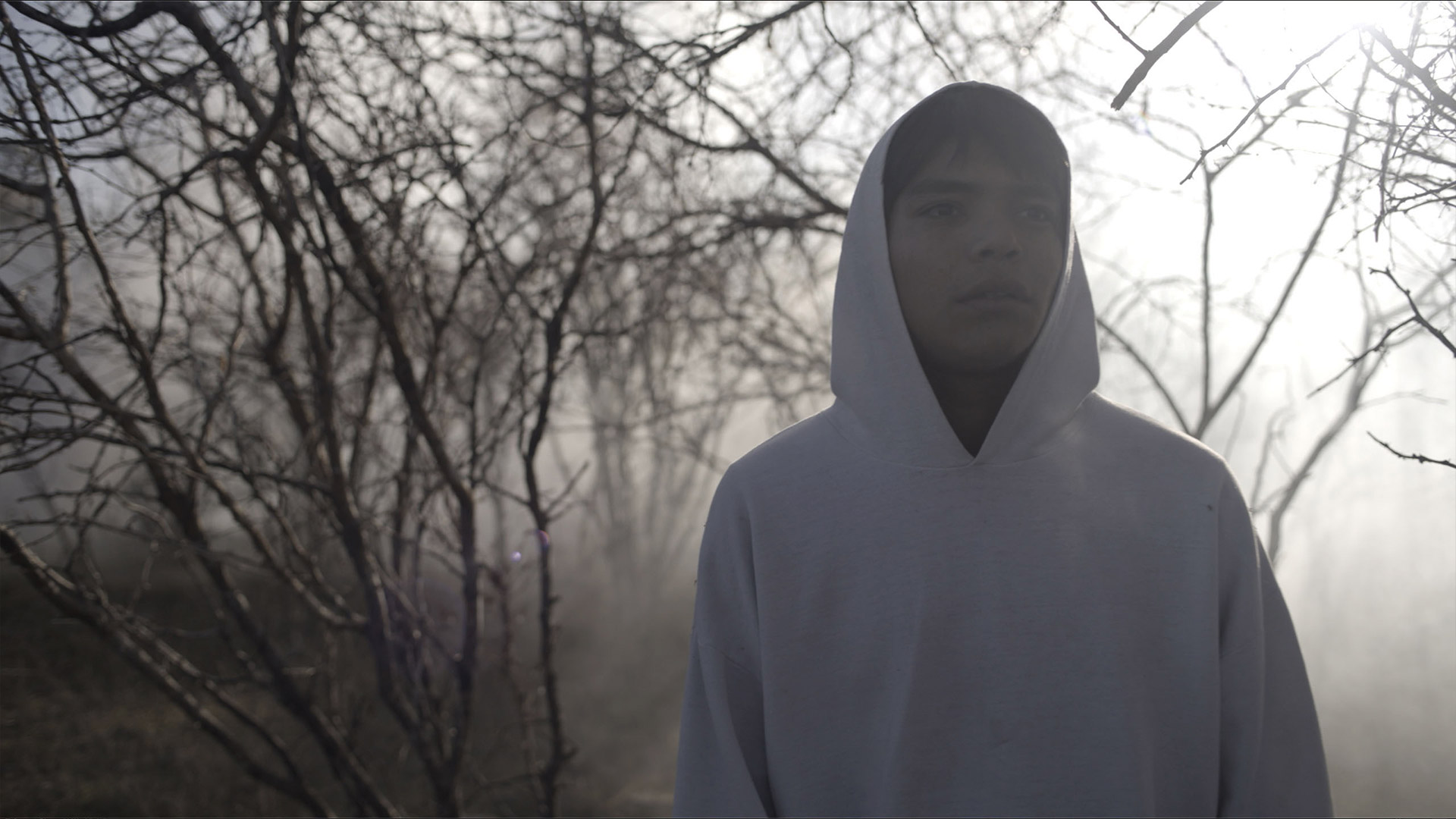
Sujo
(Astrid Rondero & Fernanda Valadez, 2024, Mexico, United States & France, 125 minutes, Narrative, in Spanish)
Wednesday, May 15 @ 8:30pm – SIFF Cinema Uptown
Thursday, May 16 @ 3:00pm – AMC Pacific Place
Not Streaming Virtually
A narrative feature film with an expansive lyrical and poetic style, Sujo is ostensibly about the forces that keep young Mexican boys under the thumb of drug cartels. Yet the tale is presented in a way that mitigates darkness, poverty, violence, and other harsh realities with the positive forces of family, friendship, dreams, and the beauty of the natural world.
Following a cartel hit on his traitorous sicario father, a 4-year-old Mexican boy, Sujo, is orphaned in the countryside of Michoacan. A cartel member begrudgingly takes sympathy on him and allows him to remain under the custody of his aunt under one condition: Sujo is never to enter the town.
The film is divided into five chapters. The first is “Sujo” and covers the main character’s youngest years; the remaining four are named after family members, friends, and mentors who become central to Sujo’s life path, as he learns to defy the cartel member’s orders and becomes initiated into the gang himself. Sujo owes a large part of its success to its striking cinematography, which serves as a grounding throughline to a tale that is otherwise full of dynamically-shifting environments and emotions. The film uplifts the transformative power of matriarchs, despite a drug war that is often the result of machismo and toxic masculinity.
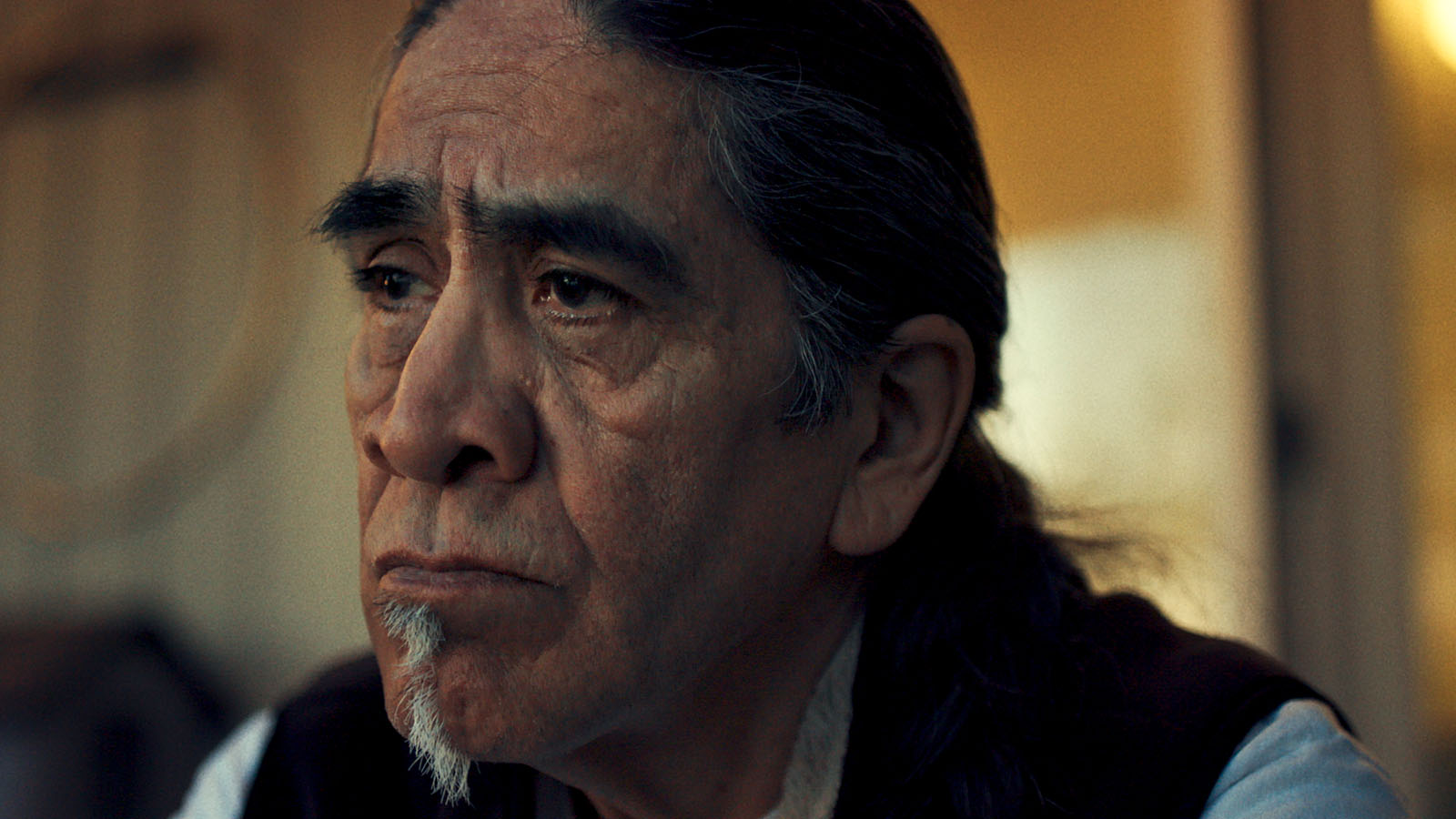
Sugarcane
Julian Brave NoiseCat (Secwepemc Nation) & Emily Kassie, 2024, United States & Canada, 107 minutes, Documentary, in English and Secwepemctsín
Sunday, May 12 @ 2:30pm – SIFF Cinema Downtown
Wednesday, May 15 @ 3:00pm – SIFF Cinema Uptown
Not Streaming Virtually
A collaboration between journalists Julian Brave NoiseCat (Canim Lake Band Tsq’escen of Secwepemc Nation) and Emily Kassie, Sugarcane is a highly personal look at Canada’s legacy of residential schools and the nation’s recent attempts to confront their traumatizing impact upon Indigenous communities. NoiseCat and Kass first met when they worked together at Huffington Post and began work on the documentary following Canada’s public admission that they had found hundreds of unmarked children’s graves at the formerly Catholic-run residential schools. Specifically, Sugarcane focuses on the Sugarcane Reserve, where children from a number of Indigenous groups near British Columbia were forced to live in an abusive, oppressive environment, far away from their cultures and communities.
Sugarcane is compelling in large part because NoiseCat decided to incorporate his own journey into the film. From that came the story of his father, who was found abandoned in a garbage can at the residential school. Their family story intersects with that of an activist who was researching residential schools well before they became “newsworthy,” as well as current and former community leaders who have been negatively impacted by the horrific legacy.
Though Sugarcane presents multiple stories from multiple families, painful commonalities of abuse and forced loss of culture are similar among all of them. Nonetheless, the film manages to offset such devastation by presenting rich views of the songs, dances, sports, and rituals of powerful Indigenous communities who have managed to thrive, regardless of the many ways that Western society has oppressed them.
Ω



